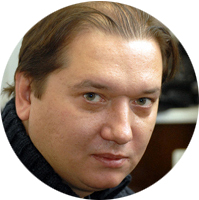HSE Partners with Russian Venture Company to Develop and Promote TechUp 2015
The Higher School of Economics has gone into partnership with RVC to develop and promote TechUp2015 — a national rating for fast-developing tech companies. RVC is a government fund of funds and a development institute of the Russian Federation, one of Russia's key tools in building its own national innovation system. Since 2015, it has been defined as a project office for implementation of the National Technology Initiative (NTI) - the long-term strategy of the country's technological development, aimed at formation of new global markets by 2035.
The purpose of the annual rating is to expose and promote up-and-coming, fast-growing companies which are introducing new technology and products on the Russian and global markets (you can read about the requirements the companies must fulfil to be included in the ratings here). The ratings give an idea of how successful the company is, its strategic plans, barriers, hindering more dynamic development and the the results of using government support. All this information is essential to improving government programmes intended to stimulate tech business and develop more efficiency to improve the competitive levels of Russian companies and in particular, increase exports of their goods and services onto foreign markets.
As part of the TechUp project, HSE aims to develop communications with companies in the rating, to assist them working with government bodies, development institutions, financial structures and the expert community to discuss the key issues and opportunities for technology development. One way of promoting the highest ranking companies will be to involve them in master classes and other educational events, organised especially for HSE students. Bringing fast-developing tech companies into dialogue with various professional communities will help cultivate the entrepreneurial climate in Russia, diversify the economy and increase the attraction for investors on the internal market.

Dan Medovnikov, Director of the HSE Institute of Innovation Management
The idea behind any national innovation system is to give rise to outstanding tech companies. It’s difficult to build one from zero, we need success stories to show us how it can be done, and preferably not just from other places - innovation needs to be country and even regional specific. Leaders in TechUp are good examples of national innovation winners - if we learn how to replicate the conditions they grew out of, we can help them to grow faster and improve their quality, and the chances for great tech companies to emerge in Russia will increase dramatically.
Source: TechUp
See also:
‘We Want the Students to Experience Real Project Work’
Contemporary universities are becoming not only centres for education and research, but also hubs for entrepreneurship. Igor Agamirzian, HSE Vice President, Head of the Department for Management of Innovation, spoke about the development of the HSE’s innovation infrastructure, about attracting students to technological business projects, and about the master’s programme ‘Corporate Research, Development and Innovation Management’.
How Can Science Be Governed and Evaluated?
Giorgio Sirilli, former chairman of the OECD Working Party of National Experts on Science and Technology Indicators (NESTI), is offering lectures to students in the Master’s programme in Governance of Science, Technology and Innovation (STI).
Futures under The Microscope
The HSE Annual Conference on Foresight and STI Policy: Cooperation, Coordination, and Challenges has come to a close. For two days (October 30-31) at the HSE premises at the foot of the Shukhov Radio Tower, signals were analysed that will sooner or later show up in contemporary socio-economic policy and in future news stories.
‘Innovation: Superpowered invention’ by Leonid Gokhberg and Dirk Meissner published in Nature
In the article the scientists compare accounts on the trajectory of innovation in Russia and the USA.
A Bridge between Science and Practice
On May 20, 2013, as part of Innovation Media Day, a discussion panel ‘Technologies of the Future: A View from Innovation Leaders, Development Institutions, and Media’ took place. The panel was organized by the HSE, RIA Novosti, and Russian Venture Company.
‘Innovation Isn’t Just an Empty Word or a Fashion Fad’
Mikhail Komarov, lecturer at the Faculty of Business Informatics Department of Innovation and Business in Information Technologies, is one of the ‘100 young innovators’ at the ‘Open Innovations’ forum. Open Innovations is an open space for people who develop and implement innovative solutions all over the world. The event is focused on forecasting technology trends and defining the role of information technology in global processes.
Plenty of Engineers – Plenty of Innovations?
On September 18th 2012, the HSE Institute for Educational Studies held the latest in its series of regular seminars. Martin Carnoy, Stanford University Professor and Academic Supervisor of the International Laboratory for Education Policy Analysis, spoke about ‘BRIC Triumph: Unprecedented Boom of Higher Education’.
About Global Leadership and Education
On September 10th the first after-summer seminar ‘Actual Research and Developments in Education’, took place as organized by the HSE Institute for Educational Studies. Sir Michael Barber, member of the HSE International Advisory Committee, spoke on ‘Oceans of Innovation: the Atlantic, the Pacific, Global Leadership and the Future of Education’.
The Russian Federation: A New Innovation Policy for Sustainable Growth / Global Innovation Index
'The Russian Federation: A New Innovation Policy for Sustainable Growth / Global Innovation Index' by Leonid Gokhberg and Vitaliy Roud has recently been published by INSEAD.
Science and Technology Indicators in the Russian Federation
The data book is the continuation of the series of publications on various aspects of S&T and innovation development in the Russian Federation. It presents statistical data reflecting the current state and trends in R&D and innovation. A specific chapter is devoted to international comparisons.


